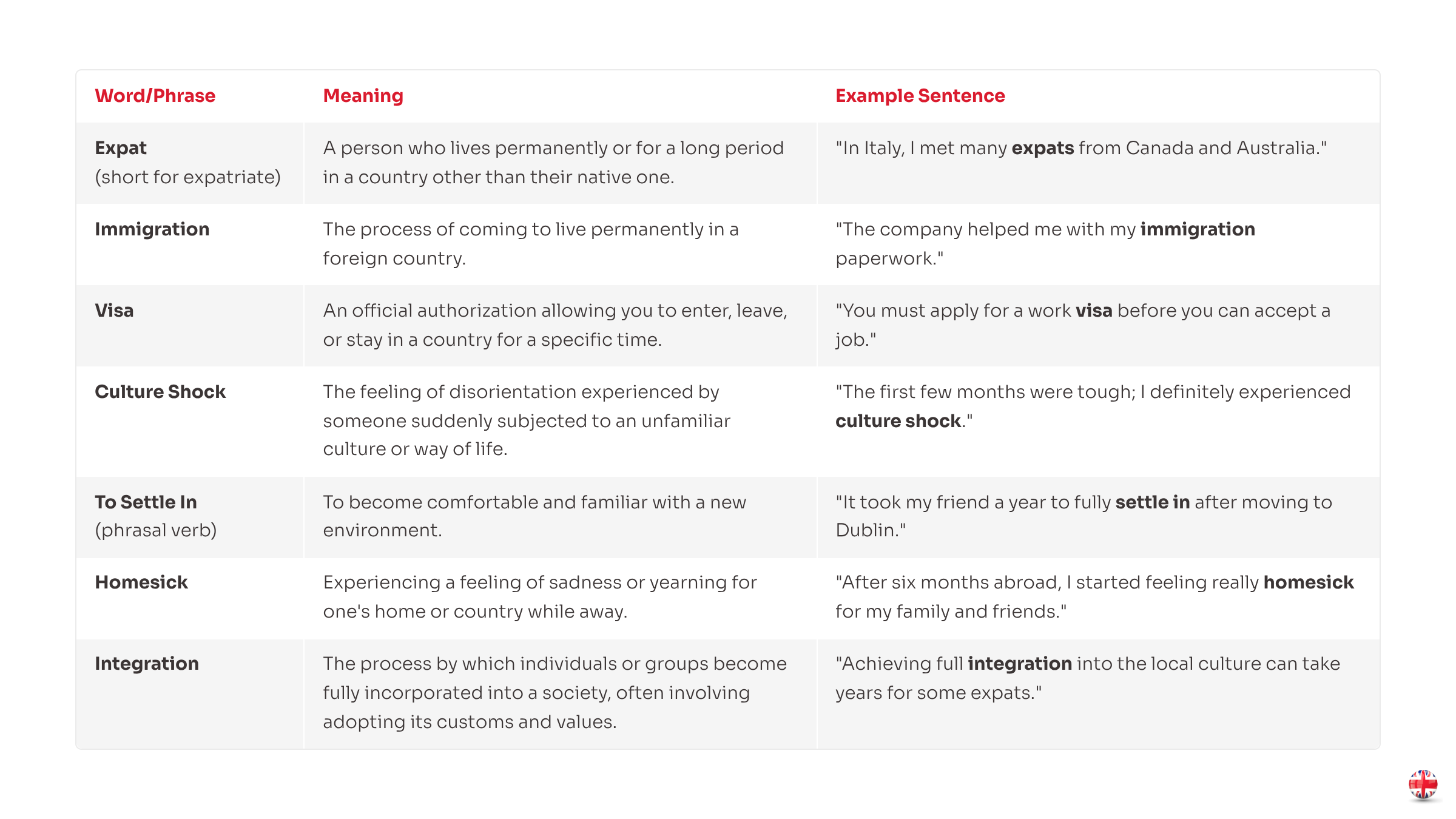3 Secrets to Sounding Local
English Skills That Will Get You Hired Abroad
Have you ever imagined living and working in a foreign country?
It’s an adventure that many people dream of!
However, the process of leaving your home country and settling somewhere new, known as relocating, involves a lot of planning and, of course, a lot of specific English vocabulary.
As someone who moved from the UK to Italy, I know that even simple tasks can become challenging when you’re dealing with a new system in a foreign language.
This week, we’re using the exciting topic of moving abroad to level up your English fluency!
Key Vocabulary for Your Big Move
When people talk about moving abroad, they often use specific terms. Here are some of the most common words and phrases you’ll hear:
Mastering Conditional Sentences
Moving abroad means thinking about possibilities and hypothetical situations. In English, we use conditional sentences to talk about these scenarios. These are essential for expressing your plans, your worries, and your hopes.
Let’s look at the First Conditional—perfect for talking about real possibilities in the future:
Structure: If + Simple Present, Will + Base Verb
Example 1 (Plan): “If I get the job in Spain, I will start learning Catalan.”
Example 2 (Requirement): “If you want to work there, you will need a special visa.”
Watch this to help…
Now, let’s consider the Second Conditional—great for talking about unlikely or imaginary situations:
Structure: If + Simple Past, Would + Base Verb
Example 1 (Hypothetical): “If I could move anywhere, I would choose New Zealand.” (I probably won’t move, but I’m imagining it.)
Example 2 (Advice): “If I were you, I would save more money before relocating.” (Note: We often use were instead of was in this structure.)
Watch this to help you more…
3 Quick Tips for Language Fluency Abroad
If you find yourself living in a new country, use these language tips to boost your fluency and confidence:
Don’t Fear the Mistake! 🗣️ The biggest obstacle to fluency is being afraid of making an error. Remember: local people are generally happy you are trying! Speak often and don’t worry about being perfect.
Use Context Clues. 🧠 When you hear new words, don’t stop the conversation to look them up. Try to guess the meaning from the other words and the situation. This skill is vital for real-life communication.
Start With Useful Phrases. Instead of just learning single words, memorise common, complete phrases related to your daily life, like: “Excuse me, could you repeat that slower?” or “How do I get to the nearest post office?”
This Wednesday, we have a podcast where a teacher tells us about their incredible move from Manchester to Mexico and back!
Make sure you listen to hear how they handled the language challenges!
Ready to take your English from good to truly fluent?
Inside the PAID tier, I’ll show you five more strategies for mastering conditional sentences, including how to use the Third Conditional to talk about regrets and missed opportunities related to travel, with step-by-step instructions and practice exercises!
Later in the week, we also have posts for:
15 Collocations With ‘IF’
Mastering the Subjunctive Mood
The Modal Perfect
Plus, we have a ‘live’ Grammar Drop-In class on Wednesday!
Already a paid subscriber? Don’t delay! Access the next part of this post right away!



